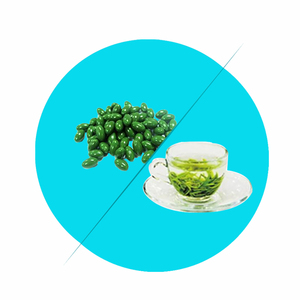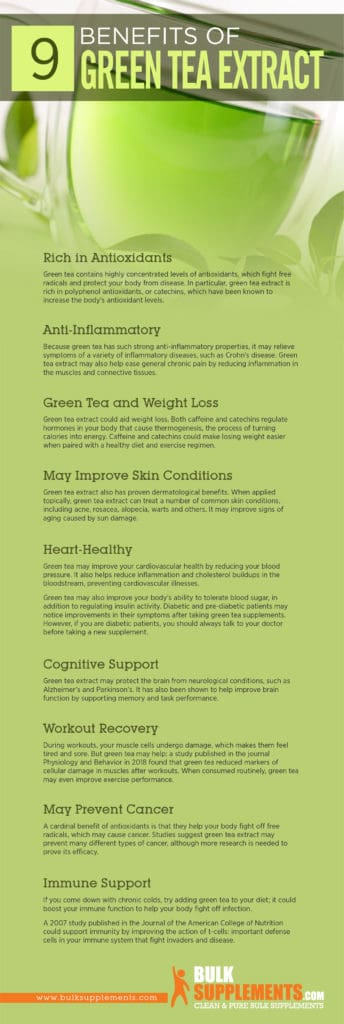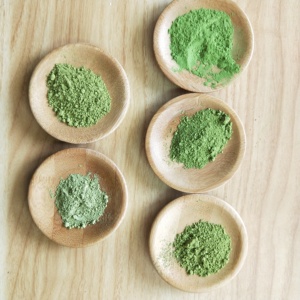Content Menu
● Understanding Green Tea Extract
● The Benefits of Green Tea Extract
>> 1. Powerful Antioxidant Properties
>> 2. Weight Management Support
>> 3. Heart Health
>> 4. Brain Function and Neuroprotection
>> 5. Cancer Prevention
>> 7. Liver Support
>> 8. Skin Health
>> 9. Blood Sugar Regulation
● The Risks of Excessive Green Tea Extract Consumption
>> 1. Liver Damage
>> 2. Caffeine-Related Side Effects
>> 3. Iron Absorption Interference
>> 4. Interactions with Medications
>> 5. Stomach Upset
>> 6. Headaches
>> 7. Dizziness and Convulsions
>> 8. Consult a Healthcare Professional
>> 9. Start with Low Doses
>> 10. Be Aware of Total Caffeine Intake
>> 11. Choose Quality Supplements
>> 12. Consider Drinking Green Tea Instead
>> 13. Monitor for Side Effects
>> 14. Avoid on an Empty Stomach
>> 15. Be Cautious with Other Supplements
● Conclusion
● Questions and Answers
Green tea has been revered for centuries as a healthful beverage, celebrated for its refreshing taste and numerous potential health benefits. In recent years, the popularity of green tea extract has surged, with many people turning to this concentrated form of green tea's beneficial compounds as a convenient supplement. However, as with many things in life, the old adage "too much of a good thing" may apply to green tea extract as well. This article delves into the complex world of green tea extract, exploring its benefits, potential risks, and the importance of moderation in its consumption.

Understanding Green Tea Extract
Green tea extract is a concentrated form of the compounds found in green tea leaves. It's typically available in capsules or liquid form and is often marketed as a weight loss aid, antioxidant supplement, or general health booster. The primary active compounds in green tea extract are catechins, a type of polyphenol with potent antioxidant properties. The most abundant and well-studied catechin in green tea is epigallocatechin gallate (EGCG).
While green tea extract offers a convenient way to obtain the benefits of green tea without having to drink multiple cups a day, it's important to understand that the concentration of active compounds in these supplements can be much higher than what you'd get from drinking green tea. This increased potency is a double-edged sword, potentially amplifying both the benefits and the risks associated with green tea consumption.
The Benefits of Green Tea Extract
Before we delve into the potential risks of excessive green tea extract consumption, it's important to acknowledge the numerous health benefits associated with this supplement when used appropriately.

1. Powerful Antioxidant Properties
Green tea extract is rich in catechins, which are potent antioxidants. These compounds help protect cells from damage caused by free radicals, potentially reducing the risk of various chronic diseases and slowing the aging process.
2. Weight Management Support
Some studies suggest that green tea extract may boost metabolism and increase fat burning, particularly during exercise. While it's not a magic solution for weight loss, it may support overall weight management efforts when combined with a healthy diet and regular physical activity.
3. Heart Health
Regular consumption of green tea extract has been associated with improvements in various markers of cardiovascular health. It may help lower blood pressure, reduce bad cholesterol levels, and improve the overall lipid profile, potentially reducing the risk of heart disease.
4. Brain Function and Neuroprotection
The compounds in green tea extract, particularly EGCG, have shown promise in protecting brain cells and potentially reducing the risk of neurodegenerative diseases like Alzheimer's and Parkinson's. Some studies also suggest that green tea extract may improve cognitive function and memory.
5. Cancer Prevention
While more research is needed, some studies indicate that the antioxidants in green tea extract may help prevent the formation and growth of certain types of cancer cells. However, it's important to note that green tea extract should not be considered a substitute for conventional cancer treatments.
7. Liver Support
Some research suggests that green tea extract may help protect the liver from damage and improve its function. However, it's crucial to note that excessive consumption can also potentially harm the liver, highlighting the importance of moderation.
8. Skin Health
The antioxidants in green tea extract may help protect the skin from UV damage and signs of aging. Some topical applications of green tea extract have shown promise in improving skin health and appearance.
9. Blood Sugar Regulation
Green tea extract may help improve insulin sensitivity and reduce blood sugar levels, potentially benefiting individuals with or at risk of type 2 diabetes.
The Risks of Excessive Green Tea Extract Consumption
While the benefits of green tea extract are numerous, it's crucial to understand that consuming too much can lead to adverse effects. The concentrated nature of green tea extract means that it's easier to overconsume the active compounds compared to drinking green tea.

1. Liver Damage
One of the most serious potential risks associated with excessive green tea extract consumption is liver damage. Several cases of liver injury have been reported in individuals taking high doses of green tea extract supplements. The exact mechanism isn't fully understood, but it's thought that high concentrations of catechins, particularly EGCG, may be toxic to liver cells in some individuals.
2. Caffeine-Related Side Effects
Green tea extract contains caffeine, which can cause side effects when consumed in large amounts. These may include insomnia, nervousness, increased heart rate, high blood pressure, and digestive issues. People sensitive to caffeine may experience these effects even with moderate consumption.
3. Iron Absorption Interference
The catechins in green tea extract can interfere with iron absorption, potentially leading to iron deficiency anemia in susceptible individuals. This is particularly concerning for people with low iron levels or those at risk of iron deficiency.
4. Interactions with Medications
Green tea extract can interact with various medications, potentially altering their effectiveness or increasing the risk of side effects. For example, it may interact with blood thinners, certain antibiotics, and some psychiatric medications.
5. Stomach Upset
High doses of green tea extract can cause nausea, stomach pain, and other gastrointestinal issues. This is likely due to the increased concentration of tannins and caffeine.
6. Headaches
Some people report experiencing headaches when consuming large amounts of green tea extract. This could be related to the caffeine content or other compounds in the extract.
7. Dizziness and Convulsions
In rare cases, excessive consumption of green tea extract has been associated with dizziness and even convulsions. This is thought to be related to the effects of caffeine on the central nervous system.
Finding the Right Balance
Given the potential risks associated with excessive green tea extract consumption, it's crucial to find the right balance. Here are some guidelines to consider:
8. Consult a Healthcare Professional
Before starting any new supplement regimen, including green tea extract, it's important to consult with a healthcare professional. They can help determine if green tea extract is appropriate for you and advise on the proper dosage based on your individual health status and needs.
9. Start with Low Doses
If you decide to use green tea extract supplements, start with a low dose and gradually increase it if needed. This allows you to monitor how your body responds and reduces the risk of adverse effects.
10. Be Aware of Total Caffeine Intake
Remember that green tea extract contains caffeine. Be mindful of your total caffeine intake from all sources, including coffee, tea, and other supplements.
11. Choose Quality Supplements
If using green tea extract supplements, choose products from reputable manufacturers that undergo third-party testing for purity and potency.
12. Consider Drinking Green Tea Instead
For many people, drinking green tea may be a safer and more enjoyable way to obtain the benefits of green tea compounds. It's harder to overconsume the active ingredients when drinking tea compared to taking concentrated extracts.
13. Monitor for Side Effects
Pay attention to how your body responds to green tea extract. If you experience any adverse effects, discontinue use and consult a healthcare professional.
14. Avoid on an Empty Stomach
Taking green tea extract on an empty stomach may increase the risk of liver damage. It's generally recommended to take it with food.
15. Be Cautious with Other Supplements
Be aware of other supplements or medications you're taking that might interact with green tea extract or add to its effects.

Conclusion
Green tea extract offers a concentrated dose of the beneficial compounds found in green tea, potentially providing numerous health benefits. However, the old adage "the dose makes the poison" is particularly relevant when it comes to this popular supplement. While moderate consumption of green tea extract can be part of a healthy lifestyle for many people, excessive intake can lead to serious health risks.
The key to safely enjoying the benefits of green tea extract lies in moderation and informed use. By understanding both the potential benefits and risks, consulting with healthcare professionals, and listening to your body, you can make informed decisions about whether and how to incorporate green tea extract into your health regimen.
Remember, there's no one-size-fits-all approach to health and nutrition. What works well for one person may not be suitable for another. Always prioritize your individual health needs and consult with healthcare professionals when in doubt. Whether you choose to sip on a cup of green tea or take a green tea extract supplement, do so mindfully and in moderation to reap the potential benefits while minimizing risks.
Questions and Answers
Q: How much green tea extract is safe to consume daily?
A: The safe amount can vary depending on the individual and the concentration of the extract. Generally, doses equivalent to 300-400 mg of EGCG per day are considered safe for most adults. However, it's best to consult with a healthcare professional for personalized advice.
Q: Can green tea extract interfere with medications?
A: Yes, green tea extract can interact with various medications, including blood thinners, certain antibiotics, and some psychiatric medications. Always consult with your healthcare provider before starting green tea extract if you're on any medications.
Q: Are there any groups of people who should avoid green tea extract?
A: Pregnant or breastfeeding women, people with liver problems, those with iron deficiency, and individuals sensitive to caffeine should be cautious with green tea extract and consult a doctor before use.
Q: How does green tea extract compare to drinking green tea?
A: Green tea extract is more concentrated than brewed green tea, providing higher doses of catechins and caffeine. While this can amplify potential benefits, it also increases the risk of side effects. Drinking green tea is generally considered safer as it's harder to overconsume the active compounds.
Q: Can green tea extract help with weight loss?
A: Some studies suggest that green tea extract may boost metabolism and increase fat burning, particularly during exercise. However, its effects are generally modest, and it should not be relied upon as a primary weight loss strategy. A balanced diet and regular exercise are more important for sustainable weight management.































